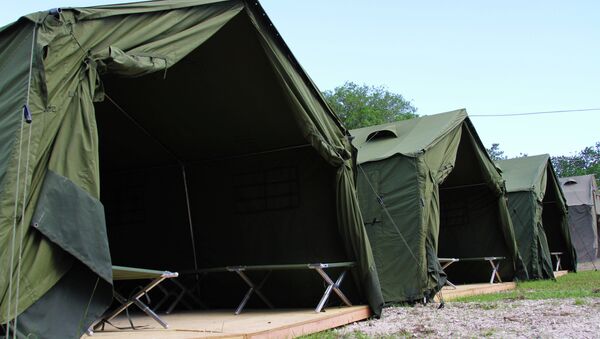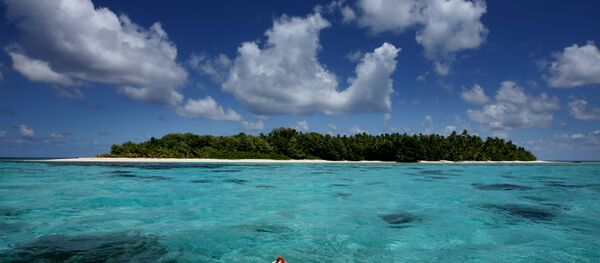The Norwegian investments were strictly condemned by human rights watchdogs Amnesty International and Human Rights Watch for apparently contradicting the oil fund's own ethical guidelines. Whereas violence, child abuse and torture all abound in the notorious camps, Ferrovial keeps, together with its investors, harvesting millions of dollars owing to lucrative contracts with Australian authorities. The two human rights groups claimed Canberra was ignoring the inhumane treatment of refugees as a means of deterring others from attempting the journey to Australia.
#Refugees held on #Nauru face frequent harassment & violence: joint rpt: @hrw @AmnestyOnline https://t.co/qud3AeRYKX pic.twitter.com/xV5LLFSkAj
— Bill Frelick (@BillFrelick) 2 августа 2016 г.
"Based on our examination of the facts, it is possible that individual officers at Ferrovial might be exposed to criminal liability for crimes against humanity under the Rome Statute," Diala Shamas, a lawyer at the Stanford clinic, told the Guardian newspaper.
"We believe that what goes on in the camps is very a serious human rights violation. Therefore, investment in Ferrovial is contrary to the oil fund's own ethical guidelines," Beate Ekeløve-Slydal, political advisor to Amnesty Norway, told Norwegian newspaper Verdens Gang. "What we have uncovered in the camps constitutes gross human rights violations, torture and inhumane treatment. The oil fund is therefore co-responsible for making all this abuse possible," she said.
So far, the Norwegian oil fund has expressed concern over the case, but refused to take direct responsibility.
"We expect our partner companies to respect human rights in their operations," Pension Fund communications manager Helena Østman wrote in an e-mail to Verdens Gang, claiming that the issue was referred to the Ethical Council.
DK politicians travel across globe & study #Australia #asylum policy #Nauru #refugees #dkpol https://t.co/wozrmkRtIP pic.twitter.com/NCmIAcRsJ9
— Henk Swarttouw (@copenhenken) 29 августа 2016 г.





